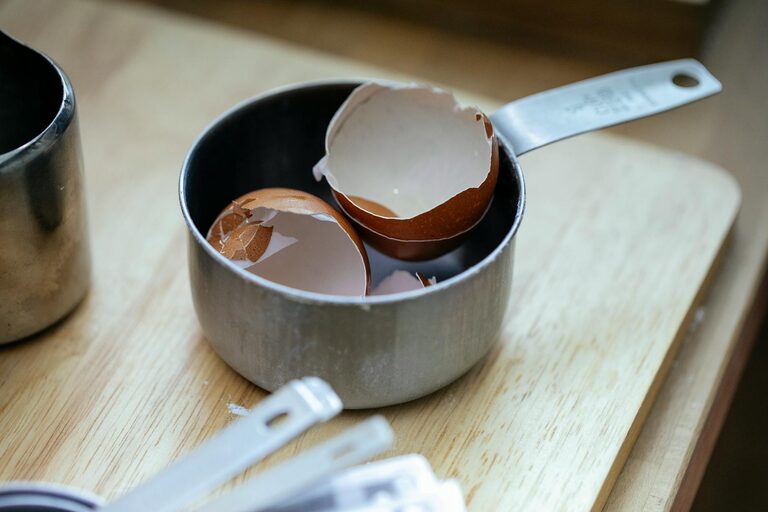Reducing food waste at home is a meaningful way to save money, protect the environment, and make the most out of your groceries. Every year, millions of tons of food end up in the trash, contributing to landfill overflow and unnecessary greenhouse gas emissions. By adopting some simple habits and planning strategies, you can minimize waste and create a more sustainable household.
In this post, we will explore practical and easy-to-follow ways to reduce food waste in your daily life.
Why Reducing Food Waste Matters
Food waste is not just about throwing away leftovers. It includes spoiled produce, uneaten meals, and excess food that goes unused. When food decomposes in landfills, it releases methane, a potent greenhouse gas. Additionally, food production uses resources like water, land, and energy. Wasting food means these resources are also wasted.
By reducing food waste, you reduce environmental impact, save money, and contribute to a more sustainable food system.
Plan Your Meals Ahead of Time
One of the best ways to prevent food waste is to plan your meals in advance.
– Create a weekly meal plan: Decide what you’ll eat each day, including breakfasts, lunches, dinners, and snacks.
– Make a shopping list: Based on your meal plan, write down exactly what you need to buy.
– Stick to the list: Avoid impulse purchases that can end up unused or forgotten.
Meal planning helps ensure you buy only what you need and use all your ingredients efficiently.
Shop Smart and Buy What You Need
When grocery shopping, be mindful of your actual needs.
– Check your pantry and fridge before shopping: Use up existing items to avoid duplicates.
– Buy loose produce when possible: This allows you to purchase the exact amount you need.
– Avoid bulk buys of perishable items: Unless you’re sure you can consume them before they spoil.
– Choose smaller portions: If you live alone or a small family, smaller packaging can reduce waste.
Being intentional about shopping helps prevent overbuying and food spoilage.
Store Food Properly
Proper storage extends the life of your food and keeps it fresh longer.
– Understand storage needs: Some fruits and vegetables do better in the fridge, while others last longer at room temperature.
– Use airtight containers: Store leftovers and opened packages to maintain freshness.
– Keep your fridge organized: Place older items in front so they get used first.
– Keep herbs fresh: Store herbs like flowers in a cup of water, covered loosely with plastic.
Good storage habits prevent premature spoilage and help you use food efficiently.
Use Leftovers Creatively
Leftovers can be delicious and prevent waste.
– Reinvent meals: Turn roast chicken into sandwiches, salads, or soups.
– Freeze leftovers: Many dishes freeze well and can be stored for future meals.
– Make stock: Use vegetable scraps and meat bones to make flavorful homemade stock.
– Plan leftover days: Dedicate a meal for using up odds and ends before shopping again.
Being creative with leftovers minimizes trips to the trash and saves cooking time later.
Understand Expiration Dates
Food labels can be confusing and lead to unnecessary waste if misunderstood.
– “Best before” vs. “Use by”: “Best before” indicates quality, not safety; many foods are still safe to eat after this date.
– Smell and look test: Use your senses to judge if food is still good.
– Preserve past peak: Freeze or cook items nearing their expiration to extend usability.
Learning to interpret dates accurately helps you avoid throwing out edible food.
Compost Food Scraps
Even with best efforts, some food waste is inevitable. Composting those scraps is an eco-friendly solution.
– Collect fruit & vegetable peelings, coffee grounds, eggshells: These make excellent compost material.
– Use a compost bin: If you have a garden, create a compost pile or bin.
– Community composting: If composting at home isn’t possible, many communities have local composting programs you can join.
Composting turns waste into nutrient-rich soil, reducing landfill impact.
Donate Excess Food
If you have extra non-perishable food you won’t use, consider donating it.
– Food banks and shelters: Many accept unopened canned and packaged foods.
– Community fridge programs: In some areas, shared fridges collect surplus food for those in need.
Donating food helps reduce waste and supports people facing food insecurity.
Educate Your Household
Reducing food waste works best when everyone in the home is on board.
– Share these tips: Discuss the importance and benefits with family members or roommates.
– Involve children: Teach kids about food value and smart consumption.
– Create a food waste chart: Track waste together and set goals for reduction.
Group effort creates lasting habits and makes food waste reduction easier.
—
Reducing food waste at home doesn’t require drastic changes—small adjustments go a long way. By planning meals, shopping thoughtfully, storing food properly, using leftovers, understanding labels, composting scraps, donating extras, and involving your household, you can make a significant difference for your wallet and the planet.
Start today with one or two tips and build your waste-free kitchen step by step. Your efforts matter!

